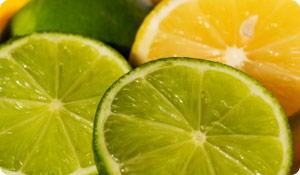
A Range of Problems
Various types of allergies and intolerances to citrus, citric acid and foods with high acidic properties do exist, but doctors say that they are usually quite rare. As a result, there isn't a great deal of information readily available about the topics, posing challenges for the people trying to get to the root of their problem, and for doctors who are putting all of the pieces together to make a proper diagnosis.
Citrus Allergy
If you are allergic to citrus fruits, this is actually quite different from having a citric acid allergy, since the allergen is not the acid itself but a protein in the fruits. Citrus fruits can include a range of common fruit items, including clementines, grapefruits, kumquats, oranges, lemons and limes.
You may experience a mild reaction to any of these items, or your symptoms could be quite severe. The types of things you may experience can span a wide range and can include nausea, itching, abdominal pain, diarrhea, vomiting, wheezing and hives. In extreme cases, if you have a citrus allergy, you may also be at risk for a life threatening condition called anaphylactic shock, which requires immediate medical attention.
Citric Acid Allergy or Intolerance
Citric acid is a naturally occurring substance that can be found in many fruits and vegetables. It is also often added to many other popular foods.
People who are sensitive to citric acid could react in one of two possible ways: they could have an actual allergic reaction to foods that contain this substance (and as a result could experience any of the symptoms listed under citrus allergy), or they may experience intolerance, which occurs when the body can't properly digest something. While the symptoms of an allergy and intolerance can look very similar, an allergy involves the immune system and can be much more serious.
Some foods that naturally contain citrus acid include: citrus fruits, including lemons and limes, vegetables, wine, cheese and sourdough bread. In addition, some foods have citric acid added in to provide a tart flavor or to help preserve their shelf life. This can include packaged foods, soda, jams and fruit preserves, chicken stock, canned tomatoes and fruits, mayonnaise and some ice creams.
Acidic Food Allergy
If you are allergic to acidic foods, this can cover a wide range of items, including: fruits, lemon juice, tomatoes, vegetables processed with vinegar (liked canned artichokes, beets and sauerkraut), beans, breakfast cereals, breads and dairy products. Exposure to any of these things can cause a range of allergic symptoms similar to what people with a citrus and citric acid allergy experience.
It is also worth noting that some medical experts point out that when people are sensitive to acidic items, they are also at increased likelihood of having reactions to other chemicals and additives commonly used in foods, including MSG, which is often used in preparing many Chinese dishes and can make people who are sensitive experience a variety of symptoms.
Managing Your Condition
If you have any of these or other food allergies or sensitivities, there isn't much you can do to prevent the reaction. Therefore, it is essential to read labels and become familiar with the ingredients used in the foods that you eat. When you dine in a restaurant, always ask in advance if any items you order could contain the substance in question. In addition, some sources say that if by chance you do a food containing citric acid, you eat try taking Vitamin B5 to help reduce the severity of the reaction.





